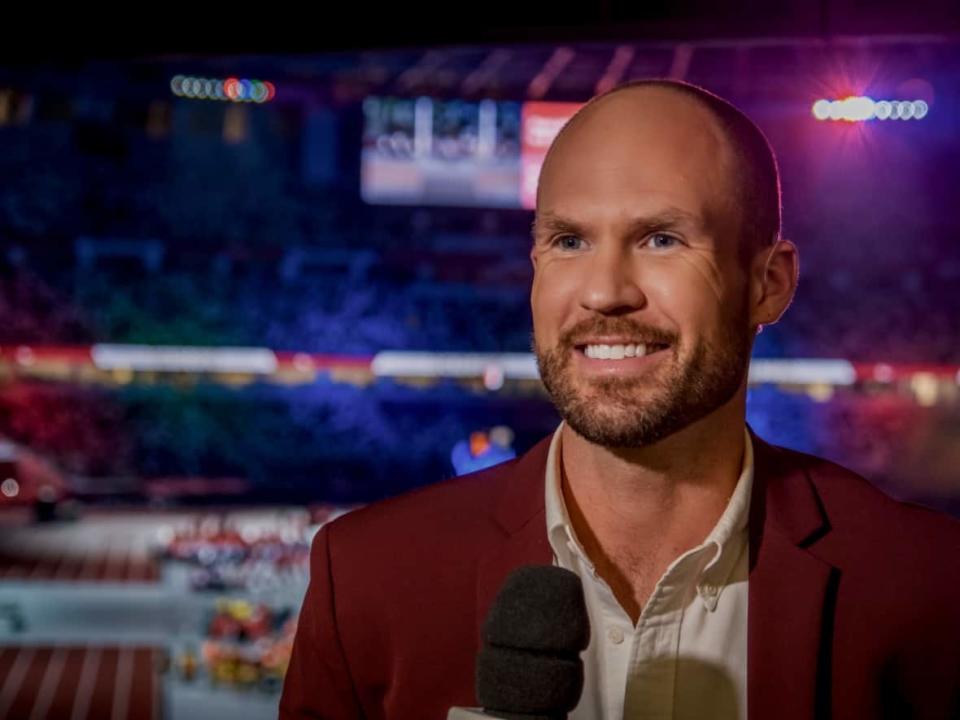Prioritizing health and safety means changing how we'll cover Beijing Olympics

For just about any sports journalist, covering the Olympics is one of the most rewarding assignments you can land. The sports are great, but the athletes are really what it's all about.
And for the past two years I've been fortunate to be able to document the journey of Canadian Olympians as they've navigated their way to the Summer and Winter Games. No matter their sport — and not unlike us non-Olympians — their lives have been upended by the pandemic.
Unfortunately my plans to cover the Olympics from Beijing have been derailed. Despite taking every precaution and closely following protocols, a positive test about a month ago is keeping me in Canada.
I'm gutted I won't be able to share the stories from the ground as I normally would have. But as disappointed as I am to not be going, I immediately think of all the athletes who might also have their Olympic dreams dashed by a positive test.
Athletes from this country have been extraordinarily resilient, creative and relentless in their pursuit of the podium during a pandemic. I've told countless stories of the anxiety and stress athletes have been carrying during the pandemic. And there have been off-the-record conversations with others who weren't sure they could go on in the face of all of this.

Olympics a career highlight
Dodging this incessant virus and actually getting to the Olympics in Tokyo, and now Beijing, has been as much a part of the challenge as anything. And mental health, rightfully so, has been an important conversation.
I've shared many of my own fears and anxiety as a reporter trying to cover an Olympics. It was a career highlight to spend more than 50 days this past summer in Tokyo sharing the stories of our Canadian Olympians and Paralympians. From the pool to the pitch, athletes provided unforgettable moments that will last a lifetime.
And I was hoping to share more moments with them and all of you from Beijing.
On Christmas, I tested positive for COVID-19. Thankfully, my symptoms were mild and my recovery was quick. But when I saw the double lines on the rapid test, there was a sinking feeling for reasons beyond my own health and those around me.
I knew testing for COVID to go to the Olympics would be stringent. But it was a month (30 days to be exact) from when I was to set off for Beijing and I thought — or maybe better put, hoped — I'd be able to meet all the protocols and get to the Games.
I've held onto that hope until this week.
To be able to enter China, the Beijing Olympic Committee required three subsequent negative tests from anyone who tested positive within 30 days of departure. I was originally able to meet those requirements, but have since recorded a positive PCR test, residual virus from my infection nearly a month ago.
A higher threshold of testing is being used in China compared to Canada, making it difficult for people in my circumstances to produce a negative test. And without the certainty of knowing I will test negative upon arriving in China, I cannot put my colleagues nor any athletes on the flight over in jeopardy of being deemed a close contact.
Health and safety the priority
CBC is not sending any staff who have tested positive within 30 days of departure.
"This was one of those decisions that was definitely the right one, but also a tough one at the same time," said Chris Wilson, executive director, CBC Sports and Olympics.
"We knew it was necessary to protect our staff and the project overall, but it also causes a butterfly effect throughout the plan. In the end, we told our team that every decision would be made with health and safety as the top priority and we very clearly lived up to that."
So what does it all mean?
While I'll miss being on the ground providing the behind-the-scenes stories and 7-Eleven snack updates you've come to expect from me, I'll be doing my best to take you on a different journey from here in Canada.
There will be many cups (and cereal bowls) of coffee.
Colleen Jones and I will still be bringing you That Curling Show every night at 7 p.m. ET — Colleen will be on the ground in Beijing and I'll be here in Toronto. I'll be live-tweeting almost every Canadian event and bringing you all the drama as always. And there will be countless stories of the athletes as they compete.
I'm excited about the opportunity to be a part of our exceptional CBC team back here at home who will provide extensive, nonstop around the clock coverage of the Olympics.
For the last two Olympics I've encouraged you all back home to stay awake with me throughout the night while on the ground in South Korea and Japan for curling games, soccer matches, sprints, swings and golden moments.
Now we'll be in this together, in the same time zone and my same commitment to you and the athletes to make you feel a little bit closer to the Games.

 Yahoo Sports
Yahoo Sports 